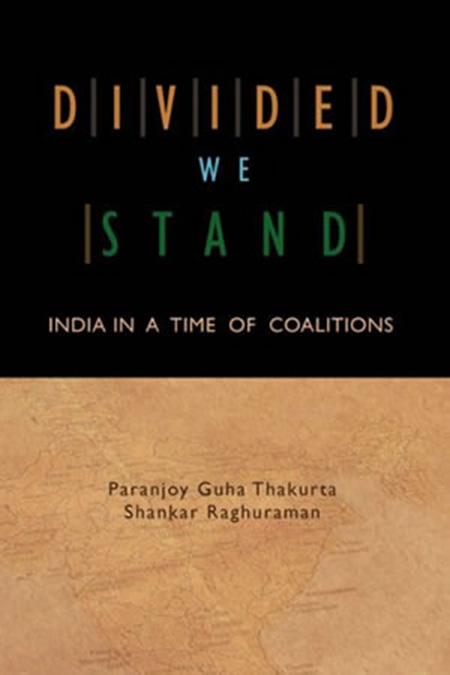The Tamil Nadu-based Sri Ramaswamy Memorial (SRM) group has decided to indefinitely postpone the launch of its English television news channel. Consequently, 40-odd employees of group company, New Generation Media Corporation Private Limited, have been verbally told to leave their jobs or accept a drastic cut in salaries. Quite a few of these employees, some of whom had been waiting for a year and a half for the launch of the television channel, are predictably upset with the terms under which they are being asked to quit their jobs without being formally served termination of employment notices.
The SRM Group, promoted by T.R. Pachamuthu, set up a number of educational institutions from the late-1960s onwards. Starting with a primary and a secondary school, the group established undergraduate and postgraduate colleges teaching a range of courses, including a number of disciplines in the medical sciences such as physiotherapy, dentistry, nursing and occupational therapy, besides engineering, hotel management, the arts and the sciences. Thereafter, the group diversified into a number of unrelated areas: hospitals, transportation, hospitality, engineering, electronics, power, over and above film production, media and entertainment.
The group launched a political weekly, Puthiya Thalaimurai (meaning "new generation") in 2009 and thereafter, periodicals on education, Puthiya Thalaimurai Kalvi and Karka Kasadara (meaning "learn properly"). It also owns two television channels: Puthiya Thalaimurai, a 24-hour Tamil news channel launched in August 2011 and Puthu Yugam, a general entertainment channel launched in October 2013. The news channel made waves as the only channel in Tamil which was not overtly biased in favour of either one of the two major political parties in the state, the Dravida Munnetra Kazhagam and the All Indian Anna Dravida Munnetra Kazhagam.
The Tamil television news space is dominated by the Sun group and the Jaya group affiliated to the DMK and the AIADMK respectively. In this duopolistic industry, Puthiya Thalaimurai broke new ground by becoming the first-of-its-kind Tamil news channel that is independent and critical of both the two large political parties in the state led by former Chief Minister Muthuvel Karunanidhi and current Chief Minister Jayalalithaa Jayaram.
Within a couple of months of its launch, the new channel's viewership ratings jumped. It became the leading Tamil news channel and started attracting substantial advertising revenues. Within a year, the channel reportedly earned annual advertising revenues of around Rs 100 crore. Although the ratings of Puthiya Thalaimurai dipped a bit after an initial burst, it remains one of the premier television news channels in Tamil Nadu -- often pitting representatives of the AIADMK and the DMK against each other and, by and large, adopting neutral positions on different political issues.
Given the runaway success of Puthiya Thalaimurai, Pachamuthu and his son R.P. Sathyanarayanan (president of the group and a former vice chancellor of SRM University) became ambitious. They dreamt of becoming a national player in the highly-competitive market for television news in English and decided they would take on the big guns in the business, namely, Times Now, CNN-IBN, NDTV and Headlines Today. On hindsight it now appears, the group was over-ambitious.
The editorial team of SRM English headed by S. Srinivasan (formerly with Headlines Today and CNBC-TV18) was strengthened. Some 50 employees were recruited over the last 18 months, including a number of senior journalists like Kishalay Bhattacherjee (formerly with NDTV), Hardev Sanotra (formerly with Financial Chronicle) and Sudeep Mukhia (formerly with Hindustan Times), among others.
Things seemed to be moving at a steady clip till the middle of 2013, that is, till June 18 when the income tax authorities decided to conduct search and seizure operations on various premises of the SRM group, its promoters, their relatives and their associates. According to a report in The Hindu (20 June 2013), the raids followed complaints by the father of a student who was allegedly asked to pay a capitation fee of Rs 30 lakh to gain admission into a medical degree course run by an educational institution in the SRM group.
The Hindu report added that the 30-hour search and seizure operations were conducted by over 250 officers of the income tax department in over 40 different locations in Chennai and other parts of Tamil Nadu, Bangalore, Delhi, Ghaziabad in Uttar Pradesh and Sonepat in Haryana. The raids reportedly yielded "unaccounted" cash worth Rs 6.75 crore and jewellery. It was further claimed that the search operations "led to confiscation of documents which indicated receipt of donations, inflated expenditure, diverting funds of trusts and evasion of income tax for the last few years".
In early August, Srinivasan told his colleagues that there would be a delay in the launch of the group's English television news channel. Ten people left the organisation thereafter and the staff strength of the group's English television operations under New Generation Media Corporation, came down to 40. The staffers were asked to write for the group's news website and the employees wanted the website to be beefed up but the management went slow.
On 28 November, Srinivasan was reportedly summoned to Chennai from Delhi. He confided to a few of his colleagues that the management of the SRM group seemed lukewarm to the idea of launching the English channel. Word got around quickly and the employees told one another that it was time they started looking around for new jobs. Even as Srinivasan said he was talking to the management, a meeting was convened on 9 December of all the employees who had been recruited for the English channel. He told his colleagues during the meeting that the management of the group has decided to "wind up" operations and that the last date of work would be 15 December. Srinivasan said the management wanted to shut shop even earlier but he persuaded them to continue till the middle of December.
It is not clear whether the closure is connected to the raids.
A severance package was proposed: one month's gross salaries would be paid to those who had worked for less than six months and two months' salaries for those who worked for a longer period, plus salaries for half of December. Many of the employees were unhappy with the offer and said they would seek legal avenues to redress their grievances. They wrote to the company's president the following day stating that the severance offer that had been conveyed to them verbally was unacceptable and sought for written confirmation of what was being offered to them by way of a severance package.
They pointed out that many of them had joined a new company leaving established organizations in the hope that they would part of an "idealistic" and "ambitious" venture, that the media market in India was in a bad shape and it would be difficult to find alternative avenues of employment in a few months and that they had nothing to show on their resumes as work experience for the period they had been employed.
Soon thereafter, the CEO of New Generation Media Corporation R.B.U. Shyam Kumar told a small group of employees that the company was experiencing "financial difficulties" as it had not been successful in obtaining a loan it had sought and that it would not be possible for the management to bear an expenditure of one crore a month for the English television news venture. He then indicated that the management was willing to up the severance offer to three months' gross salaries to all employees plus full salary for the month of December 2013 -- or a total of four months' salaries.
On December 13, Shyam Kumar made this offer formally by addressing all the employees through a video conference. He added that those who wanted to could stay on after accepting a 50 per cent cut in remuneration. They could write for the website and even "moonlight" (or informally contribute to other media organizations) till the English channel was launched, he added. Once again, the employees asked for a written offer but nothing had come till the time of writing this article.
When contacted by this correspondent, both Shyam Kumar and Srinivasan chose not to offer any comments.
Meanwhile, the Tamil channels continue to run, but there is now a question mark over whether the higher education business offers a much needed viable alternative to media financing.


